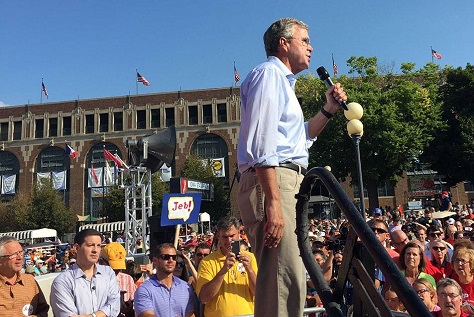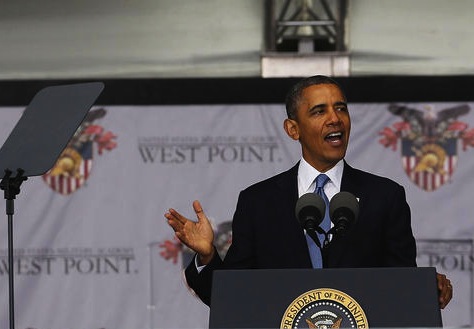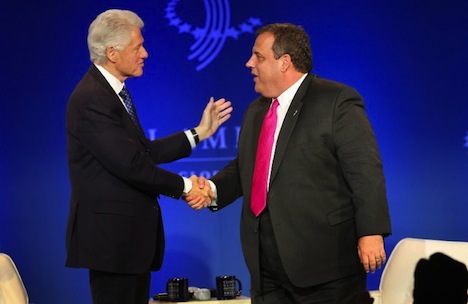
In Vox on Tuesday, Jeremy Shapiro and Richard Sokolsky argued that, as president, Hillary Clinton would be too focused on her domestic political agenda to be too bothered with foreign policy, whether she’s really a hawk or a dove or [name your bird of prey].![]()
I worry that lets Clinton off the hook for some poor policy decisions over the course of her career, both as a senator from New York and as the nation’s leading diplomat as US secretary of state. After all, it was vice president Joe Biden who proclaimed in Jeffrey Goldberg’s famous piece for The Atlantic earlier this year on the ‘Obama doctrine’ that Hillary ‘Hillary just wants to be Golda Meir.’
That same profile gave us the following nugget into Clinton’s mind on international affairs:
Many people, I noted, want the president to be more forceful in confronting China, especially in the South China Sea. Hillary Clinton, for one, has been heard to say in private settings, “I don’t want my grandchildren to live in a world dominated by the Chinese.”
Suffice it to say that, as the 45th president of the United States, Clinton wouldn’t quite welcome the end of unipolarity just yet.
But I also worry for another reason, summed up in four words by former British prime minister Harold MacMillan: ‘Events, dear boy, events.’ George W. Bush, until September 2001, wasn’t supposed to be a foreign policy president, either. You don’t choose your issues in the Oval Office; the issues choose you. (One reason, among many, why Donald Trump remains such a terrifying presidential nominee).
To steal a concept from Tyler Cowen over at Marginal Revolution, who might be the only person left in the United States who’s managed to turn the 2016 general election into an exercise in intellectual growth, I’d like to engage in my own version. I’ll call it ‘foreign policy hindsight 20/20 for me, but not for thee.’ Continue reading Is Hillary Clinton really a hawk?


